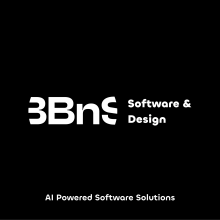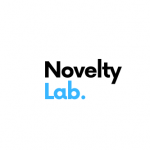
There are 9 Companies in Ghana
that provide NodeJS Development Services!
Ghana is actively trying to establish itself as a key ICT hub in the East African region. The country appears to be making good progress in this regard, helped by having strong connectivity infrastructure and a young, innovative population.
Discover Top IT Companies in Ghana specialized in NodeJS and other related services. Find the best IT service providers for your projects.
Node Js is a JavaScript runtime environment that allows developers to run JavaScript code on the server-side. Unlike traditional server-side technologies like PHP or Ruby, which are typically used for handling server tasks, Node.js enables developers to use JavaScript for both client-side and server-side development.
Handpicked companies • No obligation to hire • 100% risk-free
Featured Companies in Ghana
This month, the following NodeJS Development companies managed to provide an outstanding service and support. It's worth taking a look.
Epahubb Consult, based in Kumasi, offers expertise in mobile apps, web dev, graphics, cybersecurity, and IT services. Established in 2023.
Founded in Accra, Ghana, Nelloglobal technologies delivers innovative, reliable, and tailored IT solutions empowering African businesses to thrive.
Explore Top NodeJS Development Companies in Ghana
We build software that works. Brands that stick. Systems that scale
AI Powered Software Solutions Provider
Smart, scalable software solutions — empowering businesses with custom web, mobile, and cloud applications that drive real growth.
Join Infinixel.com to revolutionize digital transformation by seamlessly connecting people, processes, and products for impactful web solutions.
Celeteck is a leading software development company. Based in the UK, it also operates in South Africa, Switzerland, USA, and Ghana.
Transforming ideas into digital brilliance, we specialize in web design, app development, and innovative digital solutions
Services:
Filter NodeJS Development Companies in Ghana by Cities
Find the right tech company near you or from a specific city. Some of the best companies might be located in smaller cities.
Find more NodeJS Development companies around the world
TechBehemoths is the world's most advanced and user-friendly platform to match IT Companies with real clients without hustle.
The ICT in Ghana: Overview and Companies Data
Ghana’s IT Industry is predicted to reach $738.91 million in 2025, with a CAGR for 2025-2030 of 5.28%. The Business Process Outsourcing segment accounts for the vast majority of this, at around $243 million. Other important contributors are broadcasting, data center services, cloud, IT, and BPO.
Ghana’s combination of relatively stable governance, strategic location, and young and innovative population has made it an attractive destination for multinational companies. Several notable firms, such as Google, Microsoft, Bolt, and Bloomberg, have offices in Accra, and some have based their entire African operations from these offices.
Why You Should Work With Ghanese IT Companies
Digital service providers in the cloud and BPO markets are primarily involved in the provision, rather than the development, of services, whereas Ghanaian firms are more prevalent in the fintech and e-commerce markets. The physical technology required for the delivery of digital services is typically imported, and it is not clear that Ghana could produce these products more efficiently.
A key strength in the digital services market is the acceptance of mobile services. Any consumer solution entering the market would have to be mobile-compatible. Mobile healthcare services are expected to grow particularly rapidly as the sophistication of these offerings increases.
What to Pay Attention to When Working With Ghanese IT Companies and Web Agencies
On the consumer side, it is vital that any proposed digital service offering be mobile-compatible due to the prevalence of mobile usage in Ghana. Furthermore, smartphone penetration in the region is steadily increasing, thus increasing the sophistication of viable digital service offerings.
Given the acceptance of fintech by the Ghanese population, a possible route to entry in the consumer market is to acquire one of the many smaller fintech firms in the industry. This would resolve some of the primary barriers to entry, most specifically bureaucratic red tape and a lack of local knowledge.
On the corporate side, the most effective route to entry is likely through partnerships with smaller local resellers. This model is already popular in the Ghanaian market. A key differentiating feature here will be how well the service adapts to the Ghanaian market.
How Reliable Are Ghanese IT Companies?
Considered to be one of the biggest African IT hubs, Ghanaian web agencies and IT companies compete only with Ethiopian ones in terms of reliability. As many foreign companies have already invested and thus developed the local IT infrastructure and industry overall, Ghanaian IT companies find it easier than other neighboring countries to enter the global market and provide their services at accessible prices.
How Does the Ghanese IT Industry Relate to the Neighboring Countries?
Ghana is actively trying to establish itself as a key ICT hub in the East African region. The country appears to be making good progress in this regard, helped by having a strong connectivity infrastructure and a young, innovative population. Despite this, the country currently faces considerable political uncertainty, and issues surrounding the transparency of tenders remain a major barrier to growth.
Although Ghana’s score for the Global Innovation Index 2024 is not high in absolute terms, it ranks 101st in the world. This supports the conjecture that businesses, government, and consumers will be receptive to new technologies, as ICT has already had a substantial impact on the Ghanaian economy.
How IT Industry in Ghana Evolved in 2025?
In the last years, Ghana has developed a strong presence of IT companies in the region and is also known as one of the most progressive countries in West Africa. Free media and a democratic regime have definitely contributed to the Ghanese tech development, and now the number of startups is growing drastically on the background of a free market and multiple venture investors coming in. 2025 comes with good news for Ghana IT industry - investments and government facilities have increased the number of IT companies which in return will provide a solid economic background for further development.
What is NodeJS and what are its benefits for your projects?
Node Js is a JavaScript runtime environment that allows developers to run JavaScript code on the server-side. Unlike traditional server-side technologies like PHP or Ruby, which are typically used for handling server tasks, Node.js enables developers to use JavaScript for both client-side and server-side development. Below we’ll dive deeper into the types of projects built with it, and how companies can leverage it for their projects:
Node.js is built on the V8 JavaScript engine from Google, making it incredibly fast and efficient. It uses an event-driven, non-blocking I/O model, which makes it ideal for building scalable and real-time applications. Node.js is particularly well-suited for projects that require high concurrency, such as web applications, APIs, chat applications, streaming services, and more. It has a large and active community, which has led to a rich ecosystem of libraries and packages available via npm (Node Package Manager), simplifying development tasks.
As for the type of projects that can be built using Node.js, we can name the following:
- Web Applications: Many web applications are built using Node.js, often using web frameworks like Express.js. These applications can range from small personal websites to large-scale, enterprise-level platforms.
- APIs (Application Programming Interfaces): Node.js is commonly used to create RESTful APIs that allow different services or applications to communicate with each other. This is essential for building services that provide data to mobile apps, websites, and other clients.
- Real-time Applications: Node.js is favored for real-time applications, such as chat applications, online gaming, and collaborative tools. The event-driven architecture of Node.js is well-suited for handling multiple concurrent connections.
- Streaming Services: Media streaming platforms and services that deliver audio and video content use Node.js to efficiently manage and serve media files to users.
- IoT (Internet of Things): Node.js is used in IoT projects to handle data collection from sensors and devices, process that data, and communicate with cloud services.
- Serverless Functions: Node.js is a popular choice for building serverless functions or AWS Lambda functions due to its lightweight and quick startup times.
Node.js is a versatile technology that can be effectively utilized in both smaller and larger projects, but its suitability hinges on several key factors.
For smaller projects, Node.js offers distinct advantages. Its event-driven, non-blocking I/O model allows developers to rapidly prototype and develop applications. This makes it an excellent choice for creating functional prototypes, minimum viable products (MVPs), or simple web tools swiftly.
Node.js's efficiency in handling I/O operations can lead to responsive user experiences, which is valuable for small-scale applications like personal websites, blogs, or straightforward web tools. Moreover, Node.js itself is lightweight, making it suitable for projects with minimal hardware or resource requirements. It doesn't impose significant overhead, making it a cost-effective option.
Node.js is also well-suited for serving as a backend for Single-Page Applications (SPAs), handling API requests, and serving static files efficiently. Its ability to use JavaScript both on the server and client sides can reduce development costs by enabling code reuse and a single development skill set.
For larger projects, Node.js remains a compelling choice for various reasons. Its ability to handle a large number of concurrent connections positions it favorably for projects with high traffic and user loads. It's designed to scale efficiently, allowing it to distribute workloads across multiple servers or containers, making it scalable and robust.
In larger applications with complex functionality, Node.js can be employed to build microservices that communicate efficiently with each other. This modular approach enhances maintainability and facilitates development on a larger scale.
Node.js's event-driven nature also makes it an ideal candidate for larger projects requiring real-time features. It excels in managing multiple simultaneous connections, making it suitable for applications such as messaging platforms, online gaming, or collaborative tools.
Additionally, Node.js continues to offer development speed advantages regardless of project size, which can be particularly valuable in meeting tight project deadlines.
Furthermore, for larger projects with JavaScript as the primary language on both the frontend and backend, Node.js facilitates streamlined development processes, code sharing, and collaboration among teams working on different parts of the application.








